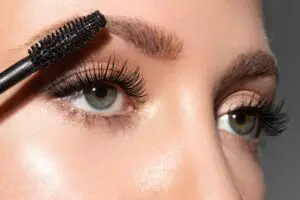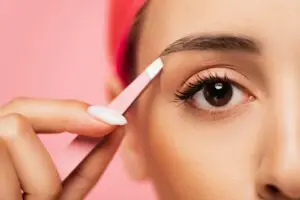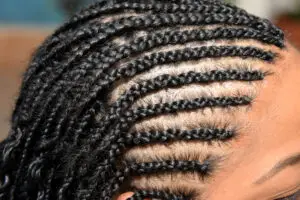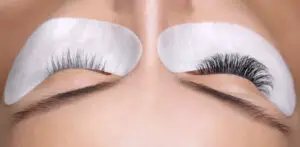Cocoa butter is a popular ingredient in various skincare products due to its moisturising properties and ability to improve skin elasticity. Derived from cocoa beans, it is often praised for its ability to reduce the appearance of scars and stretch marks. One common query surrounding cocoa butter is its potential for treating sunburnt skin.
Sunburn can be a painful and damaging experience, with potential long-term consequences including skin cancer and permanent discolouration. Naturally, people seek remedies to alleviate pain, reduce inflammation, and encourage the healing process.
While there are many traditional sunburn treatments, such as aloe vera and cold compresses, it’s worth exploring the potential benefits of cocoa butter for sunburn relief.
Although cocoa butter has anti-inflammatory properties, which may help soothe sunburnt skin and promote healing, it is essential to consider other factors before relying solely on it as a sunburn remedy.
Different individuals may react differently to the application of cocoa butter, and it is crucial to examine any potential side effects or contradictions before including it in your sunburn treatment routine.
Cocoa Butter for Sunburn Relief
Cocoa butter has properties that can aid in sunburn relief. It is known for its moisturising and anti-inflammatory effects, which can help soothe and heal the sunburned skin.
Moisturising Properties
Cocoa butter is an excellent moisturiser for the skin due to its high fatty acid content. These fatty acids help create a protective barrier on the skin, sealing in moisture and preventing dryness. Applying cocoa butter to sunburned skin can help to hydrate and soothe the affected area, making the sunburn feel less painful and more comfortable as it heals. Additionally, regular use of cocoa butter may also help to reduce the appearance of scars and stretch marks.
Anti-Inflammatory Effects
Apart from its moisturising properties, cocoa butter also possesses anti-inflammatory effects, which can be helpful in reducing the pain, redness, and swelling associated with sunburn. Applying cocoa butter to the sunburned area can help to alleviate inflammation and speed up the healing process.
In summary, cocoa butter is a beneficial natural ingredient that can provide relief from sunburn by moisturising the skin and reducing inflammation. However, remember that it’s important to take preventative measures, such as using sunscreen and seeking shade, to minimise the risk of sunburn in the first place.
Composition of Cocoa Butter
Cocoa butter is a natural fat that comes from the cocoa bean. It has numerous benefits and is widely used in various applications such as skincare and the chocolate industry. The composition of cocoa butter is crucial to understanding its benefits and effectiveness.
Fatty Acids
The primary compounds in cocoa butter are fatty acids, which make up approximately 95% of its composition. These fatty acids include oleic acid, stearic acid, and palmitic acid. Oleic acid is a monounsaturated fatty acid that contributes to its moisturising properties, while stearic and palmitic acids are saturated fatty acids, giving it a solid form at room temperature.
These fatty acids are responsible for cocoa butter’s rich texture and its ability to deeply penetrate and hydrate the skin.
Vitamins
Cocoa butter contains several essential vitamins, notably Vitamin E and Vitamin K. Vitamin E is a powerful antioxidant that helps protect the skin from environmental damage, such as UV radiation, and promotes skin healing. Vitamin K is essential for blood clotting and wound healing, which can help alleviate the negative effects of sunburn.
Minerals
Although present in smaller quantities compared to fatty acids and vitamins, cocoa butter does contain traces of minerals such as iron, copper, and calcium. These minerals may not directly contribute to its effectiveness in treating sunburn, but they do hold other health benefits. Iron is essential for red blood cell formation, calcium for strong bones, and copper for various metabolic processes.
Cocoa butter’s composition, with its mix of fatty acids, vitamins, and minerals, makes it a versatile and beneficial ingredient in skincare. In the context of sunburn, cocoa butter may provide moisturising, antioxidant, and healing properties to aid in the recovery process.
How to Use Cocoa Butter for Sunburn
Cocoa butter is a natural product rich in vitamins, fatty acids, and antioxidants, which possess healing, soothing, and moisturising properties, making it an excellent choice for sunburn recovery. To effectively use cocoa butter for sunburn, follow these easy steps:
- Clean the affected area: Gently clean the sunburned skin with mild soap and lukewarm water. Avoid scrubbing or rubbing the skin, as this might cause more irritation.
- Apply pure cocoa butter: Soften a small amount in your palms, and then gently apply it to the sunburned area. You can do this regularly – as many times as needed – until your skin feels better.
- Optional mix with vitamin E: For enhanced benefits, you can mix cocoa butter with a few drops of vitamin E oil. Vitamin E is a powerful antioxidant that promotes skin healing and reduces inflammation.
As cocoa butter is a deep moisturiser, it locks in moisture and hydrates sunburned skin, helping maintain a soft and supple feel. Additionally, its nourishing and strengthening properties aid in the skin’s protective barrier, ultimately speeding up the healing process.
In conclusion, cocoa butter can be an effective and all-natural remedy for sunburns. By following the steps mentioned above, you can reap the soothing and healing benefits of cocoa butter to alleviate your sunburn symptoms. Remember to also stay hydrated and take necessary precautions when exposed to the sun.
Comparing Cocoa Butter to Other Sunburn Treatments
Cocoa butter is a natural product derived from the cocoa bean and is known for its moisturising and soothing properties. It is commonly used in skincare products like lotions and creams. However, when it comes to sunburn treatments, how does it compare to other popular options such as aloe vera and over-the-counter remedies?
Aloe Vera
Aloe vera is a plant with a long history of use for treating sunburns, and it is considered one of the most effective natural remedies. The gel from aloe vera leaves helps to soothe red, inflamed skin and can also provide relief from itching and pain. It’s easily absorbed by the skin, allowing it to heal more quickly. If cocoa butter is used together with aloe vera, it can provide additional moisture to dry, sunburned skin to keep it hydrated and aid in the healing process.
Over-the-Counter Remedies
Over-the-counter remedies, such as creams with hydrocortisone, can also help provide relief for sunburns by reducing inflammation and itching. These remedies may also help prevent skin peeling, which is a common consequence of sunburn.
Cocoa butter, as a natural product, offers a more gentle approach to sunburn recovery, especially for those with sensitive skin. It can be as effective as over-the-counter remedies in terms of providing relief from pain and itching. However, it might not have the same fast-acting results as medicated treatments.
In summary, if your sunburn requires additional moisture, cocoa butter can be a useful treatment. It can be used alongside aloe vera to maximise the soothing benefits. While over-the-counter remedies might provide a faster response, those with sensitive skin might find cocoa butter more suitable.
For a long-lasting, comfortable relief, combining both natural and medicated treatments might be the key to getting your skin back to normal.
Precautions and Tips
Cocoa butter has numerous benefits that make it a popular choice for maintaining healthy skin, and it can be an effective remedy for sunburns as well. However, there are certain precautions and tips to consider when using cocoa butter for sunburn relief.
It’s important to address sunburn symptoms as soon as they appear to minimise damage and discomfort. First, make sure to cool the skin by applying cold compresses or taking cool baths to help reduce inflammation. Avoid using ice directly on the skin, as it can cause further damage.
While applying cocoa butter, it’s essential to gently massage the product onto the sunburned area. Be cautious not to cause friction, as this can aggravate the skin further. Also, ensure that you’re using pure cocoa butter and not products that contain additional chemicals or fragrances, as these may irritate sensitive skin.
To maximise the benefits of cocoa butter, it’s crucial to keep the skin moisturised. Apply it frequently while the skin is healing from sunburn, particularly within the first few days. However, avoid using products containing petroleum jelly, as it can create a barrier that hinders the skin’s ability to breathe and heal properly.
It’s vital to protect the skin from further exposure to the sun after experiencing a sunburn. Wear sunscreen with a high SPF, and avoid sunbathing during peak hours when the sun is at its strongest. Additionally, wearing loose, lightweight, and UV-protective clothing will further safeguard sunburned skin.
In conclusion, cocoa butter can provide relief for sunburned skin, but following these tips and precautions will help ensure its effectiveness. Always seek medical advice if a sunburn is severe, covers a large part of the body, or is accompanied by symptoms such as fever, chills, and nausea.
Conclusion
Cocoa butter is a natural product that can be beneficial for sunburn relief due to its soothing, moisturising, and antioxidant properties. Rich in vitamins, fatty acids, and antioxidants, cocoa butter promotes skin cell regeneration and turns dry, flaky skin back into hydrated and healthy skin.
With its high antioxidant content, cocoa butter supports the fight against free radicals caused by sun exposure. Its anti-inflammatory qualities can further enhance the healing process by reducing inflammation on sunburnt skin.
However, it is vital to note that cocoa butter should not be the sole remedy for sunburnt skin. Combining it with other sunburn relief products, such as aloe vera, can yield better results. When using cocoa butter as a post-sun treatment, make sure to apply it on clean, cool skin to maximise its benefits.
Finally, although cocoa butter has shown positive effects on sunburned skin, prevention remains the best approach to protect the skin from the harmful effects of the sun. Always wear appropriate sun protection, such as sunscreen and protective clothing, to minimise the risk of sunburn in the first place.

I’m Jennifer a beauty and wellness expert. I believe in promoting a sustainable and healthy lifestyle from within. Helping people feel good is my passion; whether it’s teaching yoga or offering skincare advice.







